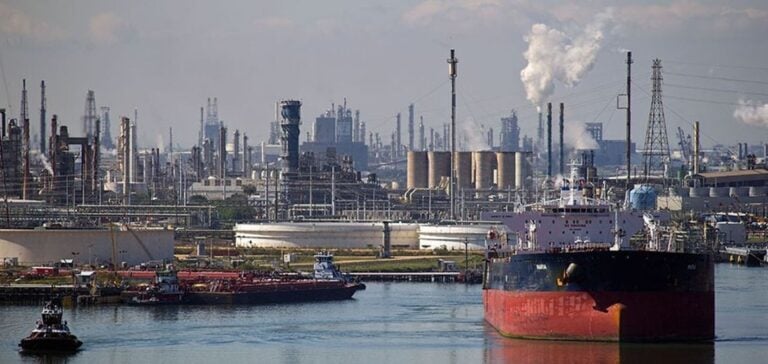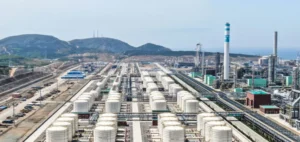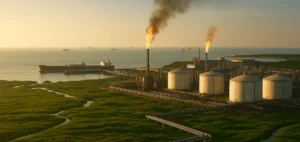The U.S. Energy Information Agency (EIA) has announced a significant increase in U.S. crude oil inventories for the week ending June 7, 2024. This increase of 3.7 million barrels contrasts sharply with analysts’ forecasts, who were expecting a decrease of 1.5 million barrels, following the drop in crude oil inventories announced in March.
Increase in imports
Crude oil imports jumped by almost 18% in one week, reaching a level not seen since August 2018. This substantial increase in imports was a key factor in the rise in inventories. At the same time, exports fell by 29%, also contributing to the accumulation of crude oil reserves.
Domestic production also rose slightly, from 13.1 to 13.2 million barrels per day, close to the all-time record of 13.3 million. Despite this slight increase, US refineries continued to operate at very high capacity, using 95% of their capacity, down slightly from 95.4% the previous week.
Demand slowdown
Demand for petroleum products in the United States fell by 6% over the week. Although gasoline demand edged up by 1% to over 9 million barrels per day, the “other products” category, which includes refined products used in the petrochemical industry, fell by 28%. This drop in demand also played a role in the increase in inventories.
This publication had a significant impact on the oil market, curbing the rise in prices that had been observed until then. At 15:00 GMT, a barrel of West Texas Intermediate (WTI) for July delivery was up just 0.56% at $78.34, having reached a peak increase of almost 2%.
Market outlook
Fluctuations in crude oil imports and exports, as well as changes in domestic demand, are crucial indicators for market players. The increase in US inventories could signal a forthcoming adjustment in import or production policies to stabilize prices. Market watchers will be keeping a close eye on future EIA publications to assess short- and medium-term trends.
This rise in US crude oil inventories, driven by increased imports and fluctuating domestic demand, highlights the complex dynamics of the oil market. The reaction of WTI prices and potential adjustments to energy policies will be key points to watch in the weeks ahead.





















